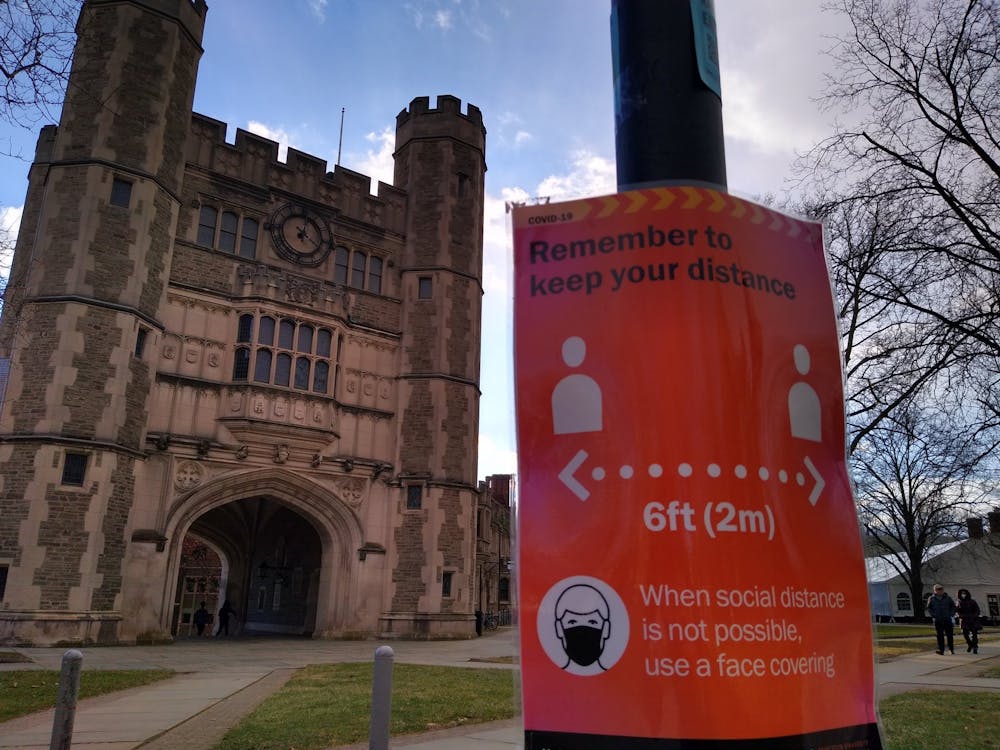The following is a guest contribution and reflects the author’s views alone. For information on how to submit an article to the Opinion Section, click here.
Earlier this year, when New Jersey announced that access to COVID-19 vaccines would be expanded to all adults, I, like many others, was ecstatic. Never mind that the nearest appointment was 50 miles and a train ride away from my on-campus dorm ― I was thrilled to have the opportunity to protect the lives of those around me and bring a speedy end to the pandemic by receiving the vaccine.
I’m grateful to the scientists and physicians who developed these lifesaving immunizations. Together, the Pfizer, Moderna, and Johnson & Johnson vaccines have saved hundreds of thousands of lives across the United States. Infections among vaccinated individuals remain extremely rare, with the overwhelming majority of hospitalizations and deaths associated with COVID-19 occuring in unvaccinated people.
I’m also thankful that my fellow undergraduates have similarly recognized the incredible protection offered by these vaccines. At an Aug. 9 town hall, University administrators stated that about 99 percent of undergraduate students would be vaccinated. By making the decision to be vaccinated, these students have helped to ensure that Princeton can maintain a safe, healthy, and essentially COVID-free environment for everyone as we all prepare to return to campus.
Given what we know about the phenomenal efficacy of the vaccine, why, then, has the University chosen to reimpose a universal indoor mask mandate? Quietly announcing the new mask requirement less than two days after calling mandatory masking a “possibility” that “remains to be seen,” the University provided no scientific or data-driven explanation for its abrupt policy reversal ― because there isn’t one.
Arguments by those in favor of continued mask mandates often point to supposed uncertainty around the effectiveness of the vaccines in preventing infection and severe disease. Yes, there have been isolated reports of breakthrough coronavirus cases among vaccinated people. But almost all of these infections are accompanied by mild symptoms, or no symptoms at all. According to recent data from the Centers for Disease Control and Prevention, less than 0.001 percent of vaccinated individuals have died of COVID-19, and fewer than 0.004 percent have been hospitalized as a result of an infection. We know that these vaccines are strongly effective in preventing infection from coronavirus.
Others might point to the fact that Princeton students, faculty, and staff interact with the surrounding community as an argument for why mask mandates on campus must continue. But the town of Princeton boasts a 77 percent vaccination rate among adults. This includes an impressive 95 percent vaccination rate among those aged 65 and over, who are the most vulnerable to hospitalization and death as the result of a COVID-19 infection. Among the University community, there have been no undergraduate COVID-19 infections this entire summer, and the campus’ overall test positivity rate has hovered at or below 0.1 percent.
Therefore, the University’s decision to require everyone, including fully vaccinated individuals, to wear masks indoors in all on-campus buildings, forces members of its community to make painful sacrifices while accomplishing nothing substantial. Flagrantly defying data and logic, this mandate will force students and faculty to revert to the hindering and unpleasant restrictions associated with the pre-vaccine pandemic.

Living on campus last spring, I can attest to the crippling effects of a universal mask mandate on everyday campus life. The dynamics of lectures, seminars, precepts, and even basic day-to-day social interactions are dramatically altered for the worse by mandatory masks. Mandatory masks also curtail other fundamental aspects of on-campus life, from indoor recreation and religious services to parties and social gatherings.
The science and the data are clear. The vaccines work, and they are our way out of this pandemic. Princeton’s impressively high vaccination rate has rendered the risk of COVID-induced hospitalizations or deaths among faculty, staff, and students exceedingly low.
By no means am I opposed to common sense public health measures, including some restrictions that were implemented prior to the existence of potent vaccines. Indeed, when infections, hospitalizations, and deaths were surging last year, and we didn’t have an efficacious counter to the virus, I favored mask-wearing in indoor public locations. However, this new mask mandate is overly broad and will do the University community far more harm than good. The reimposition of a universal mask mandate, particularly on fully vaccinated individuals, ignores the data while unnecessarily restricting campus life and undermining confidence in the vaccines.
I strongly urge University administrators to reverse this arbitrary, draconian, and unscientific mask mandate. At the very least, the University must make publicly available a detailed, data-driven justification for the existence of the mandate, which it failed to provide with its most recent announcement, along with clear criteria outlining the conditions under which the mandate would be lifted. Princeton owes as much to the students, faculty, and staff who fulfilled their social duty and received their COVID-19 vaccines in the hopes of ending this pandemic and returning to normal life.

Matthew Wilson is a sophomore from Ashburn, Virginia. He can be reached at mxwilson@princeton.edu.








